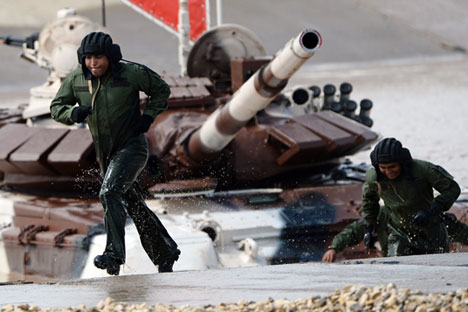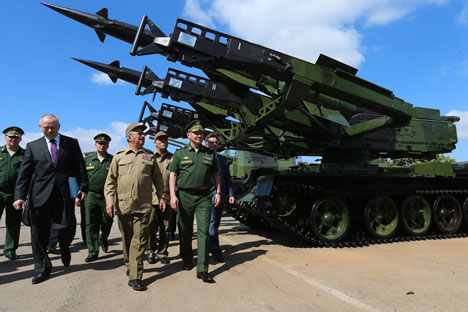Venezuela elections: Why the new government threatens Russian interests

The tank biathlon team of the Venezuelan Army at the International Army Games 2015, Alabino base outside Moscow.
Ria Novosti/Maxim BlinovA radical shift of power in Venezuela may have potentially serious consequences for relations between Russia and the South American nation, which has been ruled by the Socialists for nearly two decades.
During the parliamentary elections held on Nov. 6, the Democratic Unity Roundtable (MUD), an oppositionist coalition of centrist parties, emerged triumphant, winning a landslide victory. While Socialist Nicolas Maduro, a friend of Russia, still remains president, his party's capability to influence decisions has been significantly reduced.
Today Venezuela is Russia's second Latin American partner in terms of trade turnover after Brazil, with trade relations between Moscow and Caracas principally concerned with cooperation in the oil and defense industries.
Active oil cooperation
Russia’s state oil enterprise Rosneft is collaborating on five joint oil production projects in Venezuela: Carabobo-2, Junin-6, PetroMonagas, Boqueron and Petroperija. According to PDVSA (the Venezuelan state-owned oil and gas company), in May this year, during Rosneft CEO Igor Sechin's visit to Caracas, the two sides signed contracts on the development of deposits in the Orinoco River Valley, which many consider to be the biggest in the world, as well as on the creation of other joint projects.
A big market for Russian arms
Venezuela is also an important buyer of Russian weapons. According to the Federal Service for Military-Technological Cooperation, in 2014 Venezuela's share in Russia's overall weapons exports was six percent (which was fifth in the world and first in Latin America).
Venezuela’s armed forces are almost completely, except for transportation aviation and the fleet, equipped with Russian technology. For its army Venezuela buys Su-30 destroyers, the T-72 tanks, BTR-80A armored vehicles, Grad multiple rocket launchers and other Russian military technology. In February the TASS news agency reported that by the middle of 2013 the two sides had signed contracts worth about $11 billion.
The opposition victory is not a direct threat to Russian interests in the military sphere, but it does call into question the two countries' trade relations. Having received a simple majority, the MUD may now introduce amendments to the government budget and will have the possibility to launch parliamentary investigations against separate officials.
With the opposition in control, parliament may also adopt laws on granting amnesty to political prisoners. The opposition now controls 109 seats, giving it the right to pass no confidence votes against the vice president or the ministers.
Meanwhile, if the supporters of democratic reforms muster 112 deputies, that is, two thirds of the legislative body, they will have the power to change the constitution and the composition of the Supreme Court and the Central Bank, but only with the executive branch's agreement.
Experts believe that the new parliament will want to annul PDVSA's contract with Rosneft on the development of hard-to-recover oil reserves, having called it "a forced deal." Additionally, the opposition has always said that Venezuela is not under military threat, meaning that in the future military expenditure may be reduced and closer relations with the U.S. established.
First published in Russian in RBC Daily.
Read more: U.S. partially lifts sanctions on Russian state arms exporter>>>
All rights reserved by Rossiyskaya Gazeta.
Subscribe
to our newsletter!
Get the week's best stories straight to your inbox
